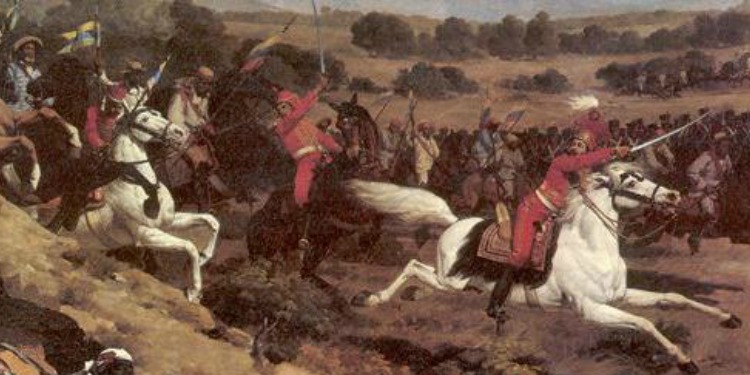The George Washington of South America and the Jews of Curacao
Stand for Israel | December 17, 2019

The above title might leave you scratching your head, but trust us, it has plenty to do with issues we all stand for.
In the past we’ve mentioned the tumultuous existence being lived by members of Venezuela’s Jewish community.
And we’ve also featured how the Dutch island of Curacao, just miles off the Venezuelan coast, was an important stop on the journey to escape the Holocaust.
But today’s story is from a time before either of those, from a time when the Jews living on the isle of Curacao were doing the helping. The man they were helping was Simon Bolivar, the liberator of much of South America — not just Venezuela, but the nations that we now know as Bolivia, Colombia, Ecuador, Panama, and Peru, as well — who would come to be known there much as Washington is known by Americans.
As the lives of liberators so often go, Bolivar’s was not one of safety. In 1812, he took refuge on Curacao, with the Jewish community there. Bolivar despised the ruling Spanish, as did the Jews he befriended. The Jewish community sheltered and fed Bolivar, but men from the group also joined him in arms.
David Haim de Moshe Lopez Penha served as Bolivar’s colonel. Benjamin Henriques became a captain in Bolivar’s cavalry. And Juan de Sola commanded said cavalry in 1821’s Battle of Carabobo, seen in the painting above, as these brave people fought for their freedom from European rule the same as those in North America had only decades before.
A curious side note regarding the Jewish community on the island of Curacao. We’ve told you why an entire generation of women in the former Soviet Union never married, leaving them to live their lives and age all alone. But until we learned about the Jews of Curacao, we didn’t know that another group of Jewish women — albeit a much smaller and now-forgotten one — experienced the same lonely lives.
You see, after Bolivar and his army gained independence for South Americans, the Jewish men of Curacao began to leave the island to look for jobs. The women, however, were unable to leave without male chaperones. This disparity grew throughout the 19th century, with only half of Jewish women on Curacao ever marrying. The rest took to education — learning arithmetic, astronomy, languages, and other subjects — and charitable works. In the meantime, Jewish communities in nations like Colombia and Venezuela grew, as Curacaoan Jews relocated. But while they were there, Curacao’s Jews played an important role in winning the freedom of millions.
